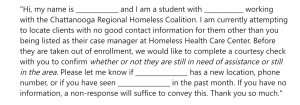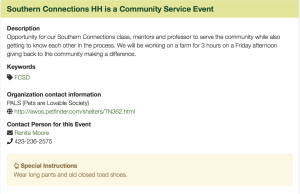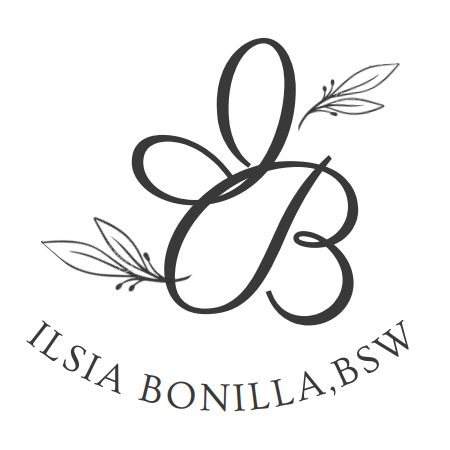Social workers understand the value base of the profession and its ethical standards, as well as relevant laws and regulations that may impact practice at the micro, mezzo, and macro levels. Social workers understand frameworks of ethical decision-making and how to apply principles of critical thinking to those frameworks in practice, research, and policy arenas. Social workers recognize personal values and the distinction between personal and professional values. They also understand how their personal experiences and affective reactions influence their professional judgment and behavior. Social workers understand the profession’s history, its mission, and the roles and responsibilities of the profession. Social Workers also understand the role of other professions when engaged in inter-professional teams. Social workers recognize the importance of life-long learning and are committed to continually updating their skills to ensure they are relevant and effective. Social workers also understand emerging forms of technology and the ethical use of technology in social work practice.
Social workers:
• Make ethical decisions by applying the standards of the NASW Code of Ethics, relevant laws, and regulations, models for ethical
decision-making, ethical conduct of research, and additional codes of ethics as appropriate to context;
• Use reflection and self-regulation to manage personal values and maintain professionalism in practice situations;
• Demonstrate professional demeanor in behavior; appearance; and oral, written, and electronic communication;
• Use technology ethically and appropriately to facilitate practice outcomes; and
• Use supervision and consultation to guide professional judgment and behavior.
To become a social worker an individual has to be proficient in the nine social work competencies. The first competency is demonstrating professional and ethical behavior. This means that all social workers should follow the moral standard and be able to apply it to the practice. This can be shown by showing respect to others and working with honest intent. Professionalism cannot be expressed without ethical behavior. Professionalism in the workplace shows that an individual can properly address other professionals and have a courteous demeanor.
Demonstrating ethical and professional behavior is crucial when working in the social work field. There is a standard an individual has to set before they involve themselves in the workplace and for that reason, it is the first competency. Without sound judgment, social workers would not be able to lead themselves or their clients in the right direction. Etiquette is also a key factor in demonstrating professional behavior. Social workers come across many other professionals and they should be able to address them accordingly.
The social work field is broad and flexible. Social workers may find themselves in a more casual atmosphere where they have to adapt to their surroundings. For example, working with children may require a social worker to use simpler terms and be more outgoing. On the other hand, working with adults may require a more serious approach. This is something that I will continue to work on. Social workers will encounter variety of clients and work settings so it is important that we carry ourselves professionally and ethically. I will be working on the types of boundaries I have to set to exude ethical behavior. My goal is to be able to adjust my presence to create an individualized experience for my future clients.
Academic Evidence:
1. In the link below, you will be directed to my Social Work Competency Application Paper focusing professionalism and ethics. This paper was completed during my junior year for a course called Junior Field Practicum taught by Professor Bertresse. This assignment was given to test my comprehension and application of this competency. This paper includes my experience at the “Meet the Firms” event and how I became a strong leader by reflecting on my past mistakes.
Social Work Competencies Application- Competency 1
2. In my Junior year of my BSW I took a course called Networking & Development with Dr. Racovita. This course required me to complete a Clifton Strengths Assessment which highlighted my strengths and brought awareness to my natural talents. The results can be found in the Signature Themes Report linked below. You will find that my top 3 strengths were restorative, empathy, and deliberative. This assessment helped me to reassure my hidden talents and apply them to my social work practice. By identifying these strengths I have seen improvement in building my other skills.
Field Evidence:
My internship at the Chattanooga Regional Homeless Coalition requires me to connect with other professionals via text, phone call, or e-mail. Towards the end of 2021, I had to reach out to various case managers to see if they have spoken to or seen their clients recently. This had to be done because if the Homeless Coalition cannot reach the client then someone who is available will be receiving the services. As a student intern I have to introduce myself as such so that they are aware of my position at the agency. Below, you will see a screenshot of what my e-mails looked like when I would reach out to case managers via e-mail.

Other Evidence:
3. In my Sophomore year, I attended a Southern Connections community service event. This event needed volunteers to help a woman clean up her property. This resident dedicated her time to rescuing various animals like dogs, foxes, and lamas. She battled cancer multiple times so she had a hard time maintaining her property. I along with a group of volunteers spent several hours making her home a more livable condition. I showed professionalism and ethical behavior during this event by not judging her appearance or living conditions. I treated her with respect and was able to reflect on my own values.

